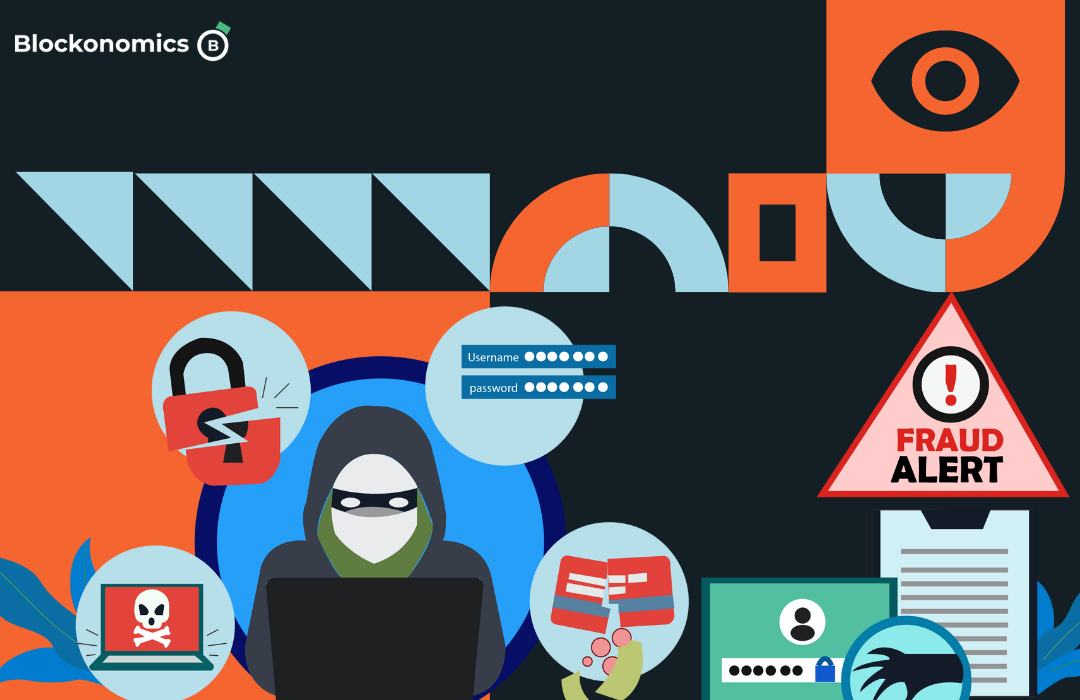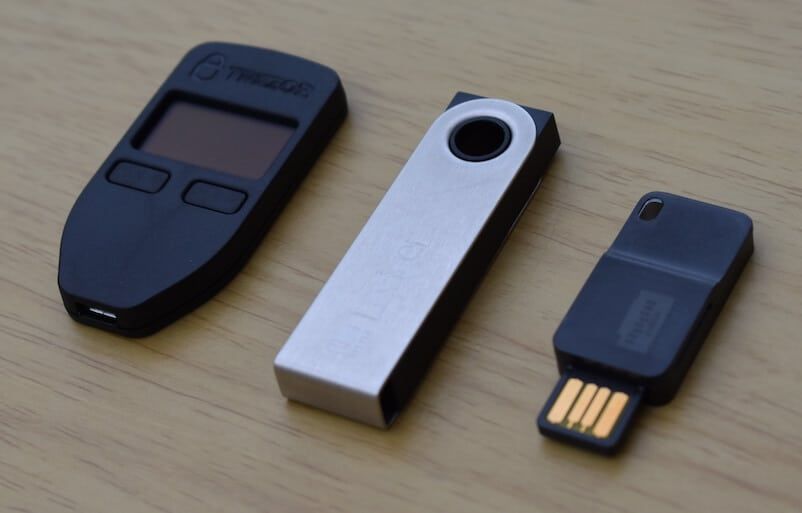Crypto Security - How to Protect your Digital Assets: Ultimate Beginners Guide
Due to its digital nature, cryptocurrency has been a target of cyber criminals so ensuring the safety of your coins is almost as important as holding them. Thankfully there are ways to protect your digital assets and not fall prey to the many cybercriminals lurking on the web.

One of the key characteristics of cryptocurrency is the true ownership it provides to its users. There has perhaps never been any form of currency in history that has managed to give its holders a true sense of ownership except crypto. This revolutionary technology is transforming the way people and businesses see money and transactions.
But one thing to note here is that with such ownership comes a certain responsibility that every crypto holder must bear, which is the safety of their digital currency.
Due to its digital nature, cryptocurrency has been a target of cyber criminals so ensuring the safety of your coins is almost as important as holding them. Thankfully there are ways to protect your digital assets and not fall prey to the many cybercriminals lurking on the web.
Let's have a look...
It's Getting Cold in Here...
One of the key characteristics of crypto is the ownership of funds it provides to all users, which means that you are in complete control of any and all crypto you hold, ipso facto you are then responsible for its safety.
And storing it in a safe place is one of the pivotal steps to crypto security. Now anyone who was dabbled with crypto in any way must know that crypto is usually stored in dedicated wallets, hence choosing the right kind of wallet is key here. Currently, there are 2 main types of crypto storage/wallet options available:
- Hot Wallets
- Cold Wallets
Hot Wallets
These types of wallets are always connected to the internet. They allow you to send, receive and store coins and tokens.
All mobile, web, and desktop wallets fall in this category as they require a constant connection to the internet to operate. Due to this nature, these wallets are more susceptible to cyber-attacks and hence are considered a risky option to store crypto.
These wallets make for a good option to store small amounts of crypto which are to be used for daily operations but not so much for large long-term storage.
Cold Wallets
All wallets that store the crypto and other private information [private keys] offline are called cold wallets.
As these wallets are not connected to the internet they are generally considered more secure and a better option to store crypto especially large amounts.
All hardware and paper wallets fall in this category. Some of the most popular hardware wallets include Ledger and Trezor.

The Key is Private 🤫...
A common saying in the crypto community goes something like this:
Not your keys, not your coins
This means that if you do not hold the private keys of coins/wallets you do not own those coins.
Non-custodial nature of crypto allows complete ownership of funds to its owner. But, this does not mean just holding the coins but also the private keys that allow you to broadcast transactions, prove ownership of that crypto, and access them anywhere.
Most times this would be the mnemonic key of the crypto wallet that holds your digital assets.
Remember the random string of words that were given to you during wallet setup, that is the mnemonic key of your wallet, sort of like a more readable form of your private key. This key allows you to access your funds and prove ownership. If you do not have this then you are not the rightful owner of the fund in that wallet/account.
If you lose your device or want to migrate to a new wallet, you can easily do so using this mnemonic key.
A lot of online/web wallets do not provide users access to this private key, in the event of an attack or system failure, if you are locked out then there is no way for you to access or migrate your funds to a new wallet and you stand to lose your funds. Hence always opt for wallets that provide you the private keys.
- Always store your private key offline
- Never share the private key with anyone
- Create multiple backups and store them safely
The More the Merrier...
You all must have heard of the common saying, "do not put all your eggs in one basket". It is a rather apt saying when it comes to crypto storage.
When storing your crypto, keeping it all in one place is usually a risky option as in case of a hack or theft you stand to lose all your crypto at once.
Hence storing parts of your assets in different places is considered a safer action as you mitigate your risk.
I Feel Secure 🔒...
Wherever possible, employ additional security measures to enhance the security of your online accounts. This could be in the form of stronger passwords, 2FA, and antivirus.
Strong Passwords with a multitude of letters, numbers, and characters with little to no personal data are difficult to crack and add security to your account.
But do make sure to remember your password(s). You can also use password managers to create long strong passwords for you.
Employing 2FA authentication adds an additional layer of security to your account. Using Google Authenticator or similar are good options as a dynamic code is generated for each new login/action.
Additionally, using a good antivirus protects your devices from malware that are steal your information.
VPN much...
Using a VPN [Virtual Private Network] is a great way to mask your online footprint. This will make it difficult for online hackers to track your online activity.
A VPN creates an encrypted cyber tunnel to send and receive data on the device which hides the identity, location, and data of the user. When dealing with crypto using a VPN is a great way to protect your identity and keep cybercriminals at bay.
Let's not Exchange...
Crypto exchanges have been one of the prime targets of some of the biggest cyber attacks in the crypto space. Binance, Mt. Gox, Bitfinex, and Cryptopia, are just some of the names that have fallen prey to cyber criminals with hackers stealing millions of dollars of user money.
In addition to the cyber threat, there is an additional concern that you must deal with when storing your crypto in exchanges. Since you do not have the private keys to the coin you do not really have true ownership of the coins. If suddenly the exchange decides to shut its doors your coins will be forever gone and there would be no way to recover them without the private keys.
Hence always withdraw coins from exchanges regularly and only keep what is needed. Remember, exchanges are not a place for storage but for trading.
Let's get Quiet 🤫...

This one is sort of true for almost all asset types and not just crypto. Keeping a low profile and not announcing your net wealth on online forums and offline events will make you less of a target by potential criminals.
Staying humble and grounded are good characteristics to hold in life and the same applies to your financial life. There is really no need to announce to the world how much money or coins you hold.
Remember a private life is a happy life.
It's a Scam...
Scams are unfortunately all too common in the crypto world. Fake social accounts, emails, websites, and IPO coin offerings are just some of the scams that are prevalent in the crypto space.
The most famous scam was when Twitter accounts of A-List celebrities such as Elon Musk, Bill Gates, Jeff Bezos, Kim Kardashian, and many more were hacked and a tweet asking users for bitcoin donations was posted on all of the hacked accounts guaranteeing double returns for every donation. The hacker raised thousands of dollars in a matter of minutes.
Always be cautious when dealing with crypto and using any crypto-related service, always default to trusted known services than unknown services that are offering to-good-to-be-true benefits.
Some general safety precautions to follow:
- Always check the URL of the website, hackers often perform phishing attacks with similar-looking URLs.
- Perform due diligence for any new crypto-related service, any service with anonymous owners and unrealistic offering is probably fake.
- Look out for fake IPOs and coin offerings, proper research is key for such investments, research the founders, timeline, team, white paper, etc and then make an informed decision.
- Avoid public Wi-Fi as hackers can breach your device using the connected network.
Conclusion
Crypto security is an essential step to protecting your digital assets. With proper measures, you can ensure the safety of assets and at the same time have complete ownership of all your funds.
- Always opt for cold storage wallets when storing large amounts of coins or for the long term.
- Store your mnemonic seed offline and create multiple backups. It is the only way to recover your funds in case you lose access to your wallet.
- Use strong passwords and 2FA to enhance the security of your apps and devices.
- Avoid public wifi networks and use a VPN to encrypt your data and protect your identity.
- Keep your assets private. Sharing excess knowledge online or offline can make you a target.
- Do not store your coins in an exchange.
- Be aware: if something seems too good to be true, it may be a scam


Comments ()